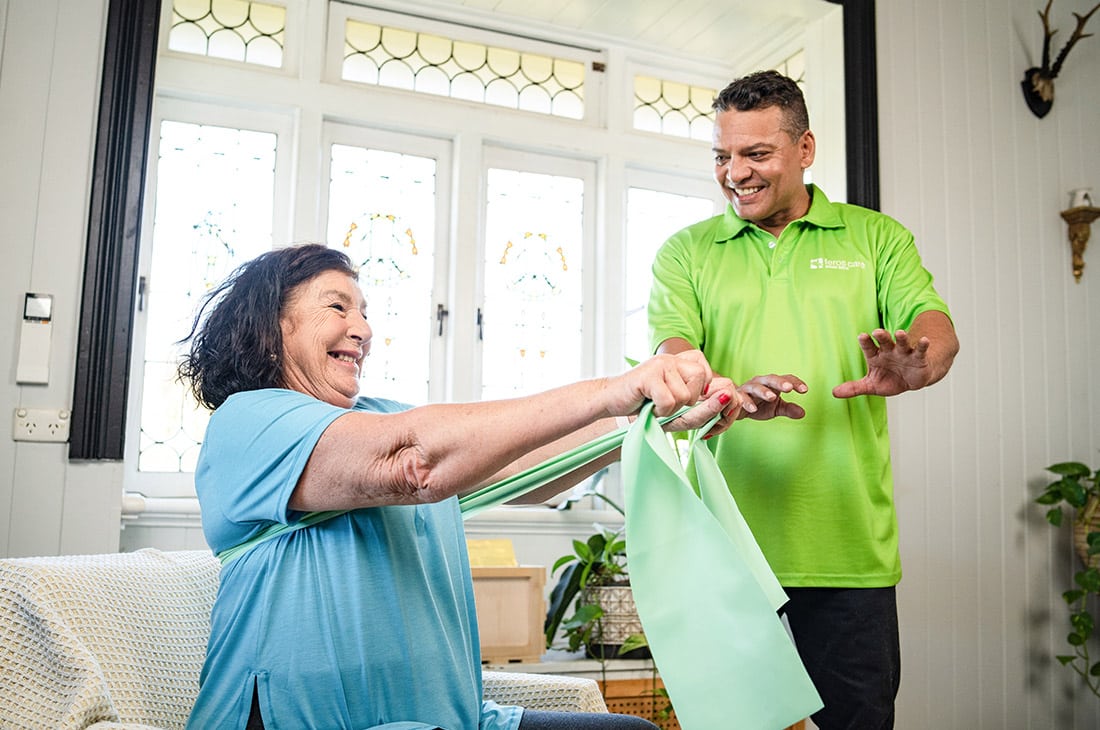The Function of Home Care Providers in Australia in Supporting NDIS Plan Managers and Caregivers
Wiki Article
Just How In Home Care Givers Address the One-of-a-kind Challenges and Emotional Requirements of Families Looking For Assistance for Their Family Members
In-home caretakers play a pivotal function in browsing the intricacies encountered by households seeking support for their loved ones. By recognizing special family members characteristics and providing tailored emotional assistance, these specialists not just address prompt care needs however likewise cultivate a setting of trust and open communication (ndis support coordinator).Comprehending Household Dynamics
Comprehending family members characteristics is vital for providing reliable in-home treatment, as each household runs within a distinct collection of communications and connections. These dynamics encompass various aspects, consisting of communication styles, functions, and power frameworks that influence how care is supplied and obtained. The caregiver needs to recognize these aspects to make certain that care plans line up with the family members's expectations and values.Different families may exhibit distinctive patterns of communication, such as ordered structures or joint methods. In some family members, a key decision-maker might hold considerable influence, while in others, choices might be much more autonomous. Understanding these patterns helps caregivers customize their methods to fit the family's details requirements.
In addition, cultural backgrounds play an important role in shaping family members characteristics. Caretakers should be culturally competent, recognizing and respecting varied techniques and ideas that may impact treatment choices.
Eventually, a comprehensive understanding of household characteristics helps with boosted interaction, promotes count on, and improves the caregiver's capability to support the family members successfully. By acknowledging the elaborate internet of duties and connections, caretakers can create a supportive atmosphere that promotes well-being for both the individual obtaining treatment and the family members in its entirety.
Giving Emotional Assistance
Giving emotional assistance is an important component of in-home care that substantially enhances the well-being of both the individual getting care and their household participants. In the context of caregiving, emotional assistance entails active listening, empathy, and recognition of feelings. Caregivers are educated to identify the emotional battles that households face, such as anxiousness, isolation, and guilt, and to offer a caring visibility that reduces these worries.By promoting open interaction, caregivers produce a safe area for relative to share their concerns and issues. This dialogue not only urges emotional launch yet also reinforces trust between the caregiver and the household. Additionally, caretakers can offer useful techniques to aid family members handle stress and anxiety and promote strength.

Eventually, the psychological assistance given by at home caregivers improves the high quality of life for both customers and their families, advertising a much more compassionate and understanding caregiving environment. This holistic approach guarantees that emotional requirements are resolved alongside physical wellness considerations.
Managing Daily Care Tasks
Handling daily treatment jobs is a crucial facet of in-home care that ensures individuals receive the assistance they need to keep their health and self-reliance. Caregivers play an essential duty in helping with activities of daily living (ADLs), that include showering, clothing, brushing, and dish preparation. By tackling these duties, caretakers aid minimize the psychological and physical burdens that family members may encounter while looking after their loved ones.
Along with individual treatment, caregivers are additionally tasked with medicine administration, making certain that customers comply with prescribed routines and does. This oversight is essential for preserving health and preventing damaging effects from missed or inaccurate drugs. Caretakers frequently aid with investigate this site flexibility, supplying assistance for clients moving around their homes, therefore decreasing the threat of drops and enhancing general safety and security.

Promoting Open Communication
Reliable monitoring of everyday care tasks typically depends upon the top quality of communication between caretakers, customers, and their important source family members. Open communication cultivates a setting where issues, preferences, and feedback can be openly traded, making sure that treatment is customized to meet private demands. Caretakers should focus on normal check-ins with both clients and their households, promoting discussions that address any type of issues or adjustments in treatment needs.Making use of various interaction techniques-- such as in person conferences, telephone call, and composed updates-- can enhance understanding and offer family members with assurance. It's crucial for caretakers to actively listen, demonstrating empathy and regard for the emotional landscape of the family members. Motivating concerns from family participants can likewise help clear up treatment strategies and enhance the caretaker's dedication to openness.
Moreover, preserving open lines of communication allows caregivers to acknowledge and respond quickly to any type of shifts in a customer's health status or emotional well-being. This proactive strategy not just strengthens the caregiver-client vibrant but likewise encourages families to participate proactively in the care process. Eventually, promoting open interaction is vital for improving the quality of in-home care and advertising an encouraging atmosphere for all included.
Building Trust Fund and Relationships
Count on is the keystone of successful in-home care, as it establishes a foundation for purposeful relationships in between caretakers, customers, and their family members. Building this trust fund requires consistent, clear interaction and a real commitment to the well-being of those involved. Caretakers have to demonstrate reliability with preparation, adherence to care strategies, and responsiveness to the demands and preferences of clients.To foster trust fund, caretakers need to take part in active listening, guaranteeing that family members really feel listened to and recognized. This entails not only resolving immediate concerns but also preparing for future needs, thereby this website equipping households and boosting their feeling of control. Establishing rapport via shared experiences and respectful interactions can even more strengthen these partnerships.
In addition, caretakers should be educated to acknowledge and attend to the emotional complexities encountered by households. By showing empathy and concern, they can alleviate anxieties and uncertainties, enhancing depend on. Routine updates and check-ins with family members can likewise improve transparency, allowing them to really feel involved and educated concerning their liked one's treatment.
Inevitably, constructing depend on and nurturing relationships in at home care is a collective procedure that significantly affects the high quality of treatment given, promoting an encouraging setting that profits everybody included.
Verdict
By understanding family dynamics, supplying emotional assistance, and cultivating open interaction, caretakers improve the general caregiving experience - ndis plan manager. Their capability to take care of day-to-day care jobs while constructing count on and strong partnerships grows an encouraging atmosphere for customers and their households.Comprehending family dynamics is essential for providing effective in-home treatment, as each household operates within a distinct collection of communications and relationships.Supplying psychological assistance is a necessary element of at home treatment that dramatically enhances the well-being of both the specific receiving treatment and their household members. By taking on these obligations, caregivers help ease the physical and emotional concerns that households may encounter while caring for their enjoyed ones.
Efficient management of everyday treatment jobs typically hinges on the top quality of communication in between caregivers, customers, and their households - in home caregivers.Count on is the keystone of successful in-home care, as it establishes a foundation for purposeful partnerships between caregivers, clients, and their family members
Report this wiki page